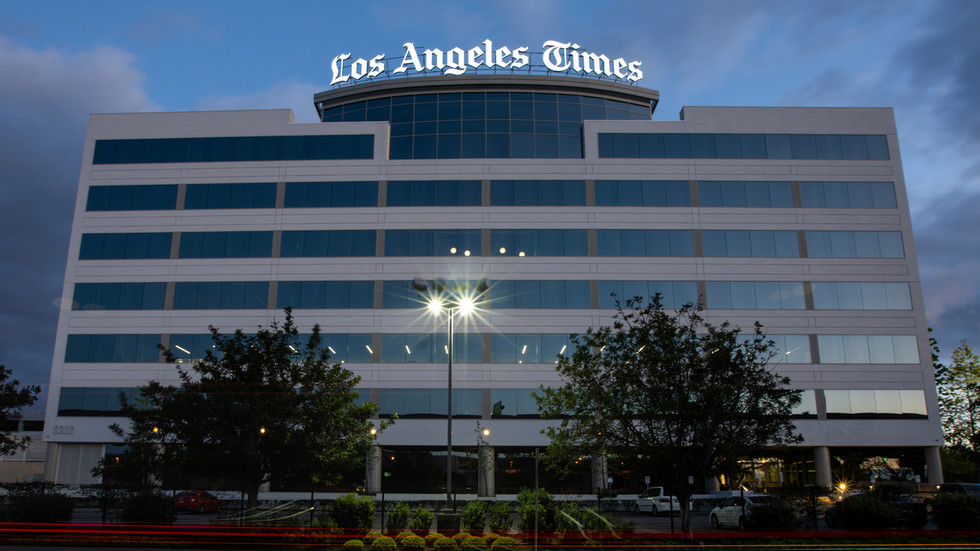Mariel Garza, the head of editorials at the Los Angeles Times, resigned in protest after the outlet’s ownership decided against endorsing Vice President Kamala Harris for the upcoming US presidential election. This refusal represents a shift in the newspaper’s editorial stance, as it has historically backed Democratic candidates in the last three presidential elections, starting with Barack Obama in 2008. Garza expressed her discontent with the Times’ silence on such a critical election, deeming it irresponsible during a time characterized by numerous challenges for the nation. Despite this context, the paper opted not to make any presidential endorsement in its recent voting recommendations, instead highlighting the 2024 election as potentially the most pivotal in a generation, while continuing to endorse multiple Democratic candidates for various local and Senate positions.
Reports indicated that the editorial board had intended to endorse Harris, but the decision was overridden by the paper’s owner and executive chairman, Patrick Soon-Shiong. In a public statement, Soon-Shiong clarified that the editorial board was instructed to provide a balanced, non-partisan analysis of all presidential candidates. He argued that the board’s refusal to engage in such analysis left him with no choice but to remain silent on the presidential endorsement. This decision marks a noticeable departure from the Times’ longstanding editorial practices, which often included decisive political endorsements based on their assessments of candidates’ qualifications and policies.
Garza’s resignation letter provided a poignant critique of the editorial board’s inaction, labeling the decision not to endorse Harris as hypocritical and potentially discriminatory. She pointed out the inconsistency of avoiding an endorsement of a candidate they previously supported in the past, specifically highlighting the ethical dilemma posed by their inaction against the backdrop of denouncing the previous Trump administration. Garza criticized the notion that silence equates to neutrality; instead, she contended that it signifies complicity in the current political climate and undermines the historical values of journalism, particularly during critical electoral periods.
The fallout from the LA Times’ decision was immediate, eliciting varied reactions from the public and political factions. For instance, the campaign of Donald Trump wasted no time in seizing the opportunity to critique Harris further, stating that even her Californian supporters question her capability for presidential leadership. This commentary illustrates a broader climate of skepticism regarding Harris and may reflect the underlying tensions leading up to the election. The lack of a formal endorsement raises questions about the editorial integrity of the LA Times and its ability to maintain a coherent stance amid evolving political dynamics.
The editorial controversy at the Los Angeles Times serves as a broader reflection of the current state of journalism, where issues of bias, representation, and editorial independence are increasingly scrutinized. The reluctance to openly endorse a female candidate of color can be perceived as indicative of systemic biases within positions of power, sparking debates on the implications of such editorial decisions for diversity in political representation. Garza’s departure might suggest a deeper schism within the newsroom regarding how best to engage with pressing political matters and what role the media should play in shaping electoral outcomes.
In conclusion, Garza’s resignation transcends mere personnel changes within the LA Times; it underscores critical broader issues surrounding editorial autonomy, the ethics of political endorsement, and the portrayal of diversity in political representation. The decision not to endorse Kamala Harris raises significant questions about the media’s role in a democracy, particularly regarding accountability in navigating the complexities of present-day politics. As the 2024 election approaches, media outlets must grapple with these challenging dynamics, balancing their editorial responsibilities with the pressing need for an informed electorate. The implications of this controversy will likely resonate well beyond the confines of the Los Angeles Times, influencing public discourse and media practices in the lead-up to one of the most consequential elections in modern history.

